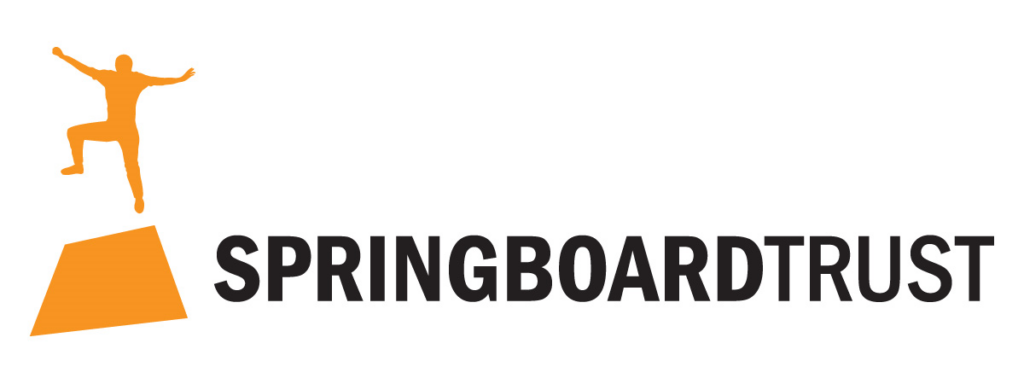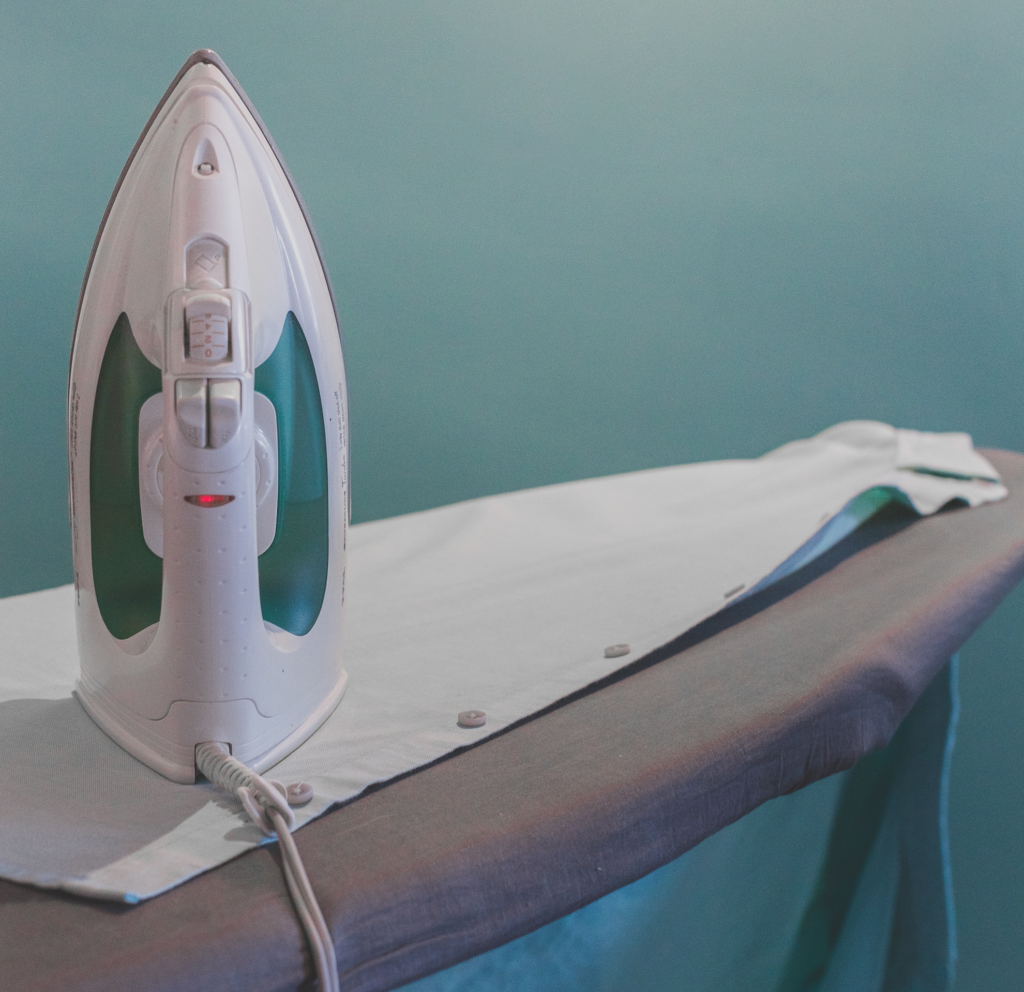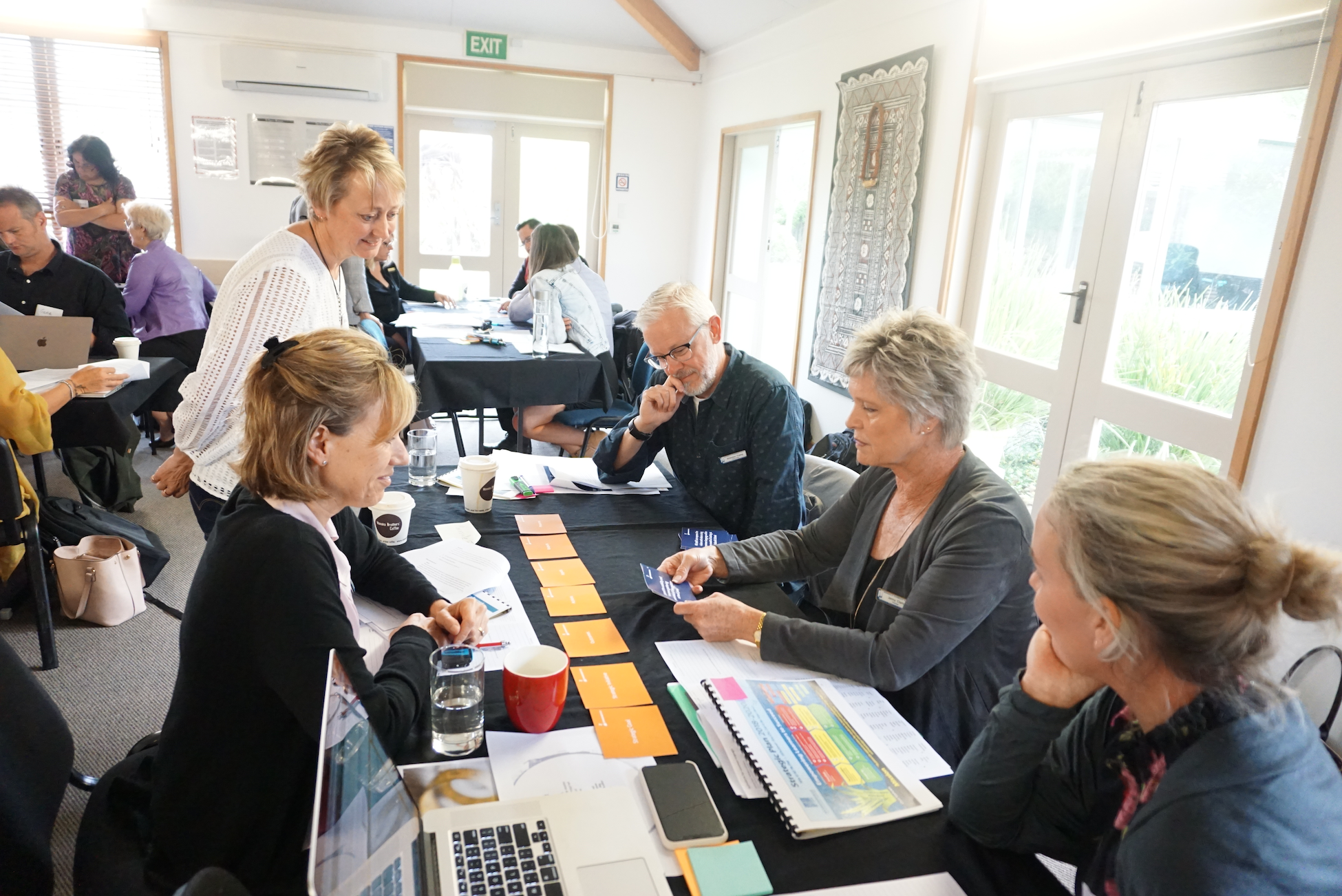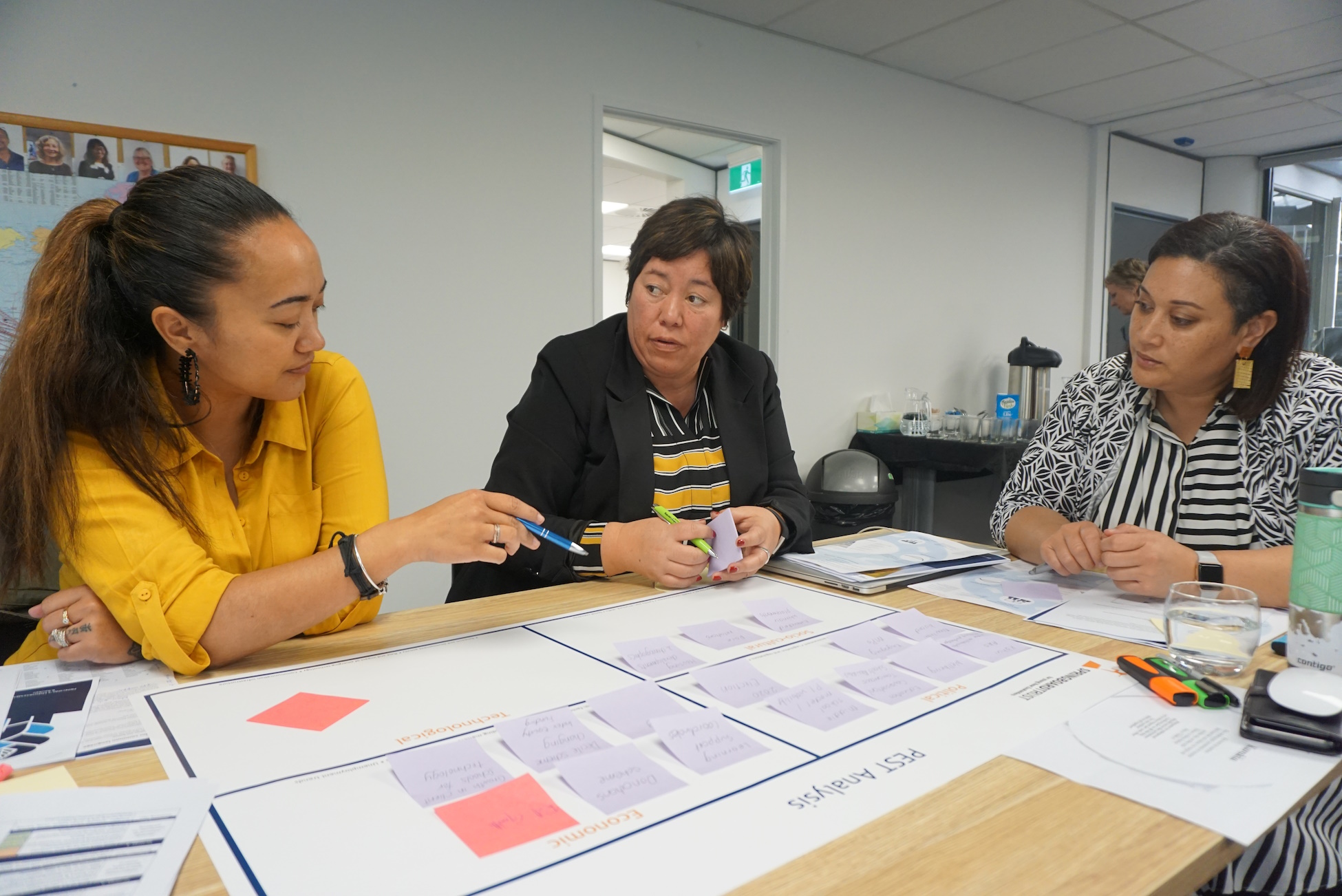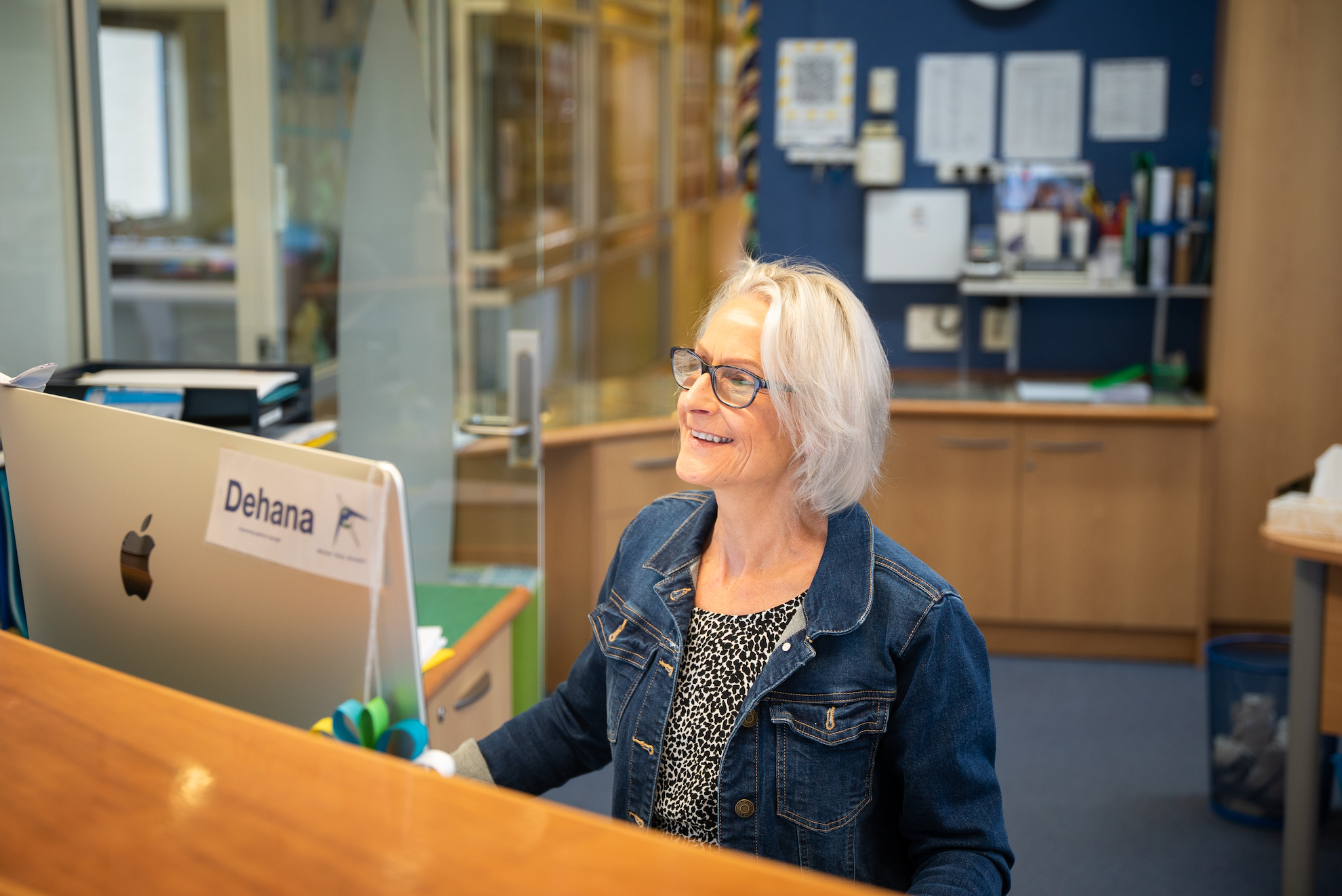We’ve all been doing things differently.
But for the team at Springboard Trust – including our amazing volunteer base – the remote environment has provided an opportunity to learn and connect in all-new ways.
Much of the work principals do with us is predicated on the cross-sector model, the idea that people coming together from different backgrounds can help each other develop in truly astonishing ways. Between our volunteers, facilitators, team and principals, how can we keep that connection going?
With an ironing board, of course.
Better together – no matter the environment
For Ellie Sutton (Portfolio Delivery Lead, Wellington and Canterbury) and Nicholas Williams (Programme Manager, Canterbury), facilitating a Strategic Leadership for Principals Programme workshop remotely had some key differences – and challenges.
“There wasn’t much of a shift in the course material,” Nicholas says, “but tech was a huge consideration.”
“’We had to be particular about planning the sequence of events and who would drive the different tech functions, and think how we would provide people with the opportunity to talk. With a series of faces on a screen and most people ‘on mute’, normal silences can become amplified, and it became really important to address everyone and create times where they all could contribute.”
Nicholas and Ellie had some nerves about leading a remote workshop – how engaged people would be, and whether everyone would feel a part of it. From the moment principals began reflecting on their last few weeks, they realised everyone was all in.
As Ellie explains, a big factor in keeping this engagement going was changes of state.
“We learned a lot from out facilitation workshop with Sysdoc, particularly not to be afraid to change our space. Just because we’re presenting on a screen, it doesn’t mean everything has to take place there – we’re also in our own physical environment, which we can use to our advantage.”
This meant, when it came time for whiteboard sessions, things got inventive. Using a whiteboard and flip chart on the wall, and the computer set upon her ironing board, what could have been a screen share became something much more engaging and entertaining.
“I’d seen memes of people creating home offices in lockdown, using ironing boards as standing desks – that sort of thing. When I started thinking about changes of state, I thought about those ironing board memes and realised hey, I have one of those!”
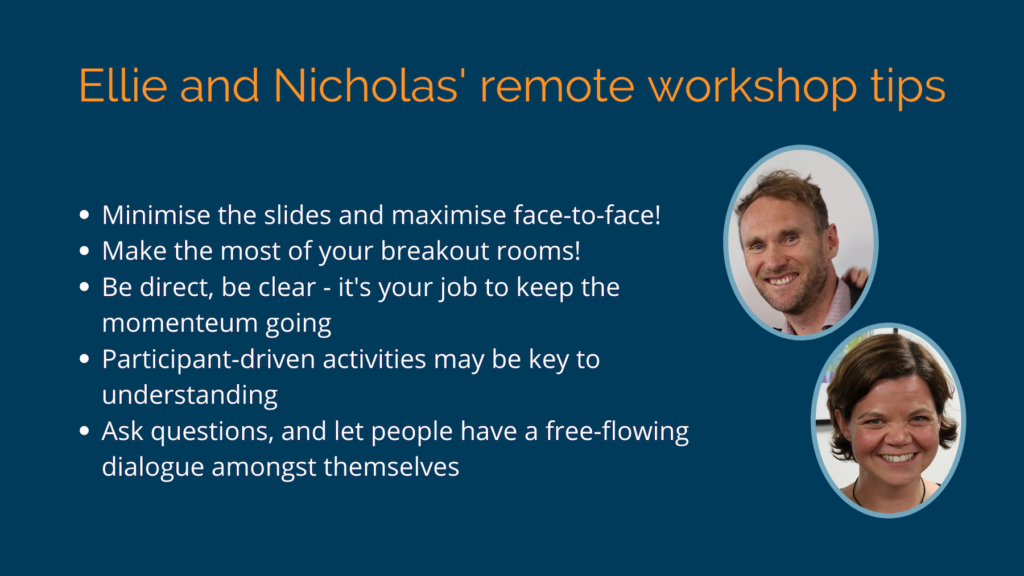
Breaking out
For Ellie and Nicholas, one change they might focus on for future remote workshops is the breakout rooms.
“We’d send people to breakout rooms and they wouldn’t necessarily do the activities we set,” Nicholas notes, “but they absolutely loved it. It was an opportunity for them to connect and process the learning.”
“You see them come out animated and energised by the conversations they’ve been able to have with their Capacity Partner.”
Speaking of Capacity Partners – IAG’s Tania Morgan-Smith, who formed part of this workshop, agrees wholeheartedly on the breakout rooms.
“I’ve only used Zoom with Springboard Trust, so the breakout rooms were very new, and totally amazing,” she says. “In an in-person group, you can miss the opportunity to have those more intimate conversations.”
“Everybody is on a level playing field, and in meeting rooms you can miss things. Being able to have those one-on-one catch ups, take notes, even screenshots – it gave me so much clarity.”
Connections made and lost
For Tania, the opportunity to connect with her principal in private breakout rooms was fantastic – something that Ellie and Nicholas saw clearly during the workshop. But for everything gained, something is often lost.
“I miss the social conversations,” Ellie says. “Those random bits in your break time, how’s your mum doing – that kind of thing.”
Nicholas agrees – “I really want to continue these remote workshops – give time for discussions, for people to open up and feel more confident in being part of that conversation. It takes a lot of getting used to, but I think there’s a lot of value in being able to hold workshops this way. I do, however, miss catching up with people on the journeys around Canterbury.”
This is something Sven Pannell, Director at KPMG also feels.
“I’m the sort of person who gets a kick out of being in the room with people, getting that human connection – which is a lot more difficult in a remote environment.”
And at the end of it all, remote workshops will continue to pose challenges for connection. Asking a group of people to conduct a programme founded on relationship-building through an online environment is big – but as Tania adds, it’s something everyone is committed to.
“At a time like this, it would be so easy to put Springboard Trust down the priority list. But everyone came, connected and reflected just like we always have.”
“It could be a time like this that actually drives people’s desire to come! Put schools in a crisis, and the spirit of its people comes straight to the top. Even if we’re connecting over a screen, that still shines right through.”
